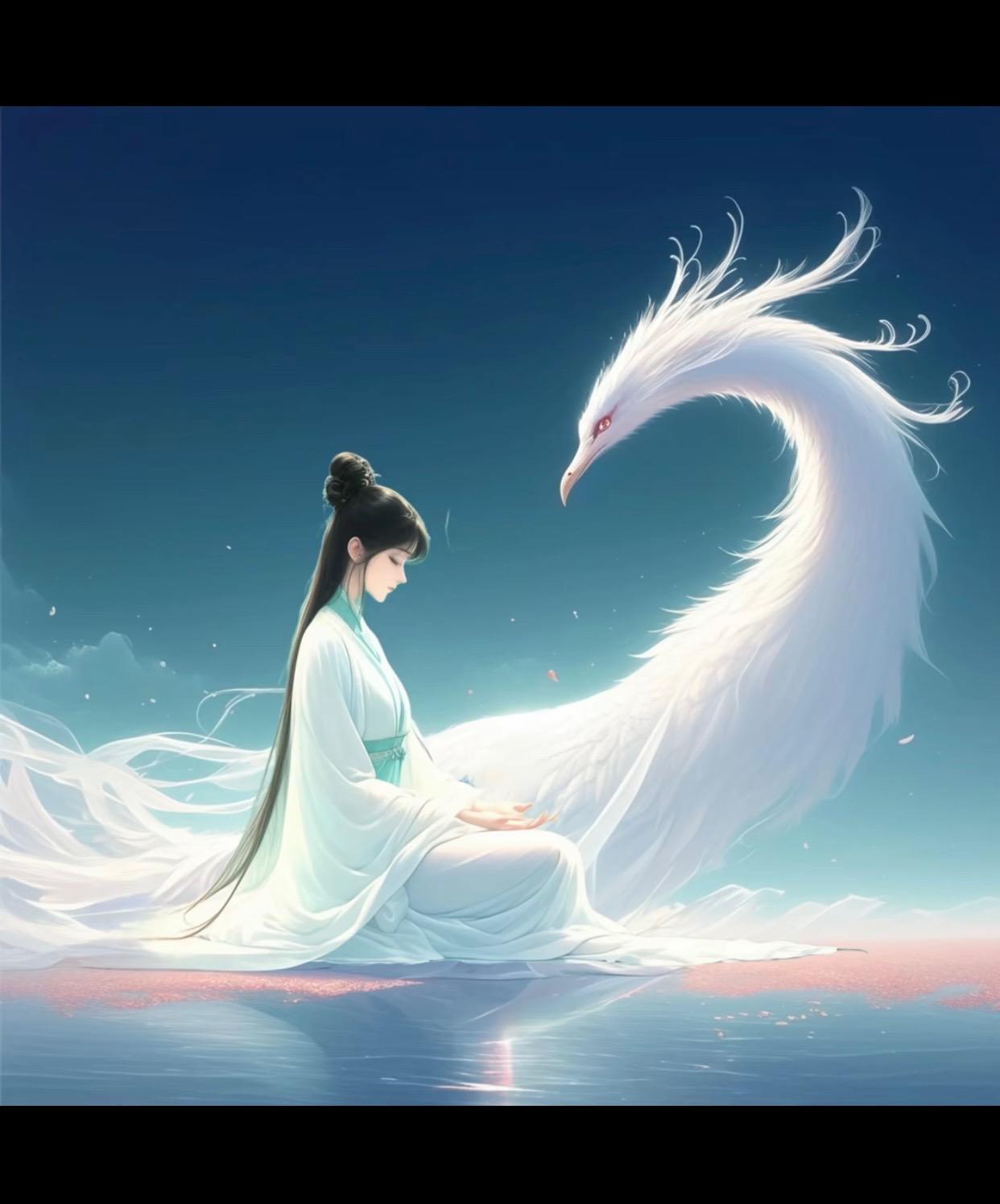In an ancient village, there lived a hunter named Chen Sheng. Chen Sheng was highly skilled in archery and could always return from hunting in the mountains with a bountiful harvest. However, he was a greedy man and always desired to capture more prey in order to obtain more wealth and possessions.
Once, while in the mountains, Chen Sheng discovered a cave. A strange glow emanated faintly from within the cave. Curiously, he entered and found a wounded white deer. The deer's eyes were clear and vivid, seemingly begging for his help. Chen Sheng was momentarily tempted to capture the deer and exchange it for a large sum of money. But looking at the deer's injured state, he couldn't help but feel a tinge of compassion.
Just as he was hesitating, he remembered the words of a Taoist priest he had met in the mountains before: "All things in the world have a spirit. It is in the act of giving and receiving that one's state of mind is revealed." Chen Sheng's heart was then engaged in a fierce struggle. On one side was the alluring temptation of great wealth, and on the other was his pity for the life of the deer.
Eventually, Chen Sheng put down his bow and arrow and decided to help the white deer heal its wounds. He carefully carried the deer out of the cave and back to his home. He used the herbs he had collected to dress the deer's wound and took good care of it. During this process, Chen Sheng experienced a sense of peace and contentment that he had never felt before. He no longer only thought about taking from nature but began to learn to give and offer.
After a period of recuperation, the white deer's injuries gradually healed. One morning, the white deer suddenly disappeared. Chen Sheng searched everywhere but could not find any trace of it. Although he felt a bit disappointed, he also understood that the deer had its own destination.
Since then, Chen Sheng's life had changed. He no longer hunted excessively as before but only caught what his family needed. He started to plant some fruit trees and herbs in the mountains and lived in harmony with nature. Strangely enough, although his hunting harvest decreased, his life became more smooth and happy. His relationship with the villagers also became more harmonious, and everyone respected him for his transformation.
This story embodies the ideological connotation of giving and receiving in Taoism. Sometimes, by giving up immediate interests and desires, one may obtain more precious things such as inner peace, harmony between man and nature, and the respect of others. In the choice between giving and receiving, people can more deeply understand the value and meaning of life, follow the guidance of Tao, not be blinded by excessive material desires, and face various situations in life with a more open-minded and wise attitude, thereby realizing the elevation and sublimation of their own spiritual realm.



